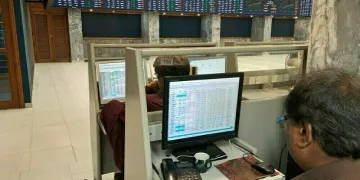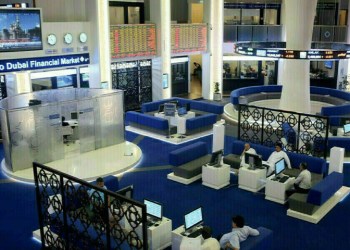NEW YORK: The dollar was firm against a basket of currencies on Friday as US job growth recorded its best month in over 1-1/2 years in February while wage gains slowed more than expected, supporting the view the Federal Reserve would not quicken its pace on raising interest rates.
The yen fell broadly after the Bank of Japan stuck to its dovish policy stance. BOJ Governor Haruhiko Kuroda, while sounding optimistic on growth, stressed there would be no plan to change monetary policy before its 2 percent inflation target is reached.
Earlier Friday, the US Labor Department said nonfarm payrolls grew by 313,000 last month, the largest monthly increase since July 2016, but average hourly earnings rose only 0.1 percent, slower than the 0.3 percent increase in January and less than the 0.2 percent forecast by analysts.
Traders concluded a tightening labor market would buttress the case for the Fed to raise key borrowing costs later this month and possibly two more times later this year, but the pullback in wage gains will likely prevent policymakers from raising rates four times in 2018.
“While this is good news for the US economy, this doesn’t change anything with the Fed. The path of three rate hikes stays as our base case,” said Chuck Tomes, senior trader at Manulife Asset Management in Boston.
The latest payrolls report may bolster the greenback in the short term, but global trade tension stemming from US President Donald Trump’s steel and aluminum tariffs, which he signed on Thursday and faster growth outside the United States remain a longer-term drag on the dollar, Tomes said.
At 10:01 a.m. ET (1501 GMT), the index that tracks the dollar against six major currencies fell 0.139 points or 0.15 percent, to 90.04.
The euro was last up 0.11 percent at $1.2324.
The single currency remained on the back foot after falling on Thursday as European Central Bank President Mario Draghi, while acknowledging faster growth in Europe, said regional inflation remained subdued and rising protectionism was a risk.
YEN SINKS
The dollar advanced to a one-week peak against the yen after the BOJ stuck to its negative rate policy on Friday and BOJ chief Kuroda, like Draghi, sounded caution about the risk of rising protectionism and inflation staying sluggish.
The yen also succumbed to traders scaling back their safe-haven holdings of the Japanese currency on news that Trump was prepared to meet with North Korea’s Kim Jong Un, marking a potential major breakthrough in nuclear tensions with Pyongyang.
The dollar was last up 0.69 percent at 106.93 yen, while the euro was up 0.80 percent, at 131.81 yen.
Source: Brecorder.com




























